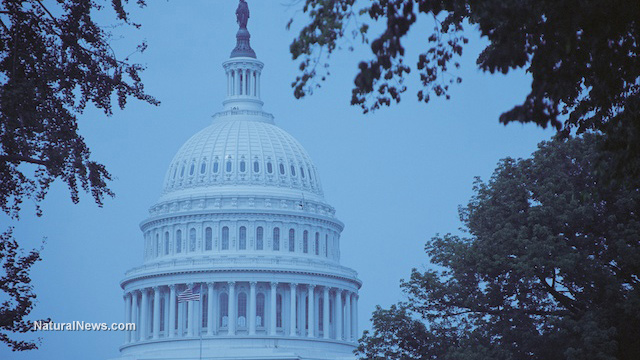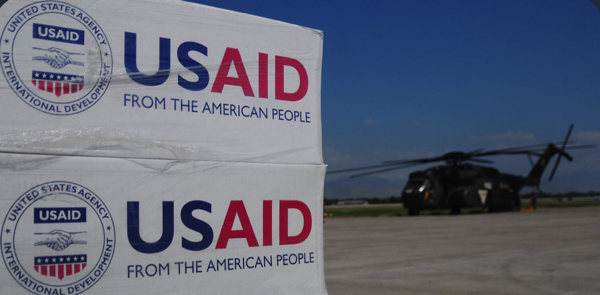“Science For Sale” details how the government works with corporations to undermine true science
02/17/2025 / By Arsenio Toledo

- David L. Lewis, a former EPA research microbiologist, reveals in his book “Science For Sale” how government agencies, corporations and prestigious universities manipulate scientific research to support their policies and protect their interests, often at the expense of public health.
- Lewis introduces the concept of “institutional scientific misconduct,” describing how powerful entities prioritize power and profit over scientific truth, leading to the suppression of critical voices and the persecution of whistleblowers.
- Washington, D.C. Lead Water Crisis: Lewis details an investigation where government agencies falsified data to downplay the health risks of lead exposure in D.C.’s drinking water, exemplifying how consensus science can stifle dissent and mislead the public.
- Lewis’ experiences highlight the professional and personal challenges faced by whistleblowers who expose scientific misconduct, emphasizing the need for policies to protect these individuals and promote transparency and accountability.
- The book underscores the urgent need for reforms in scientific conduct and regulation, emphasizing the importance of prioritizing truth over political and corporate agendas, and fostering an environment where scientific integrity can thrive.
In an era where science is often invoked as the bedrock of progress, whistleblower David L. Lewis’ book sheds light on a troubling reality: The manipulation of scientific integrity for political and corporate gain.
In “Science For Sale: How the U.S. Government Uses Powerful Corporations and Leading Universities to Support Government Policies, Silence Top Scientists, Jeopardize Our Health and Protect Corporate Profits,” Lewis, a former research microbiologist with the Environmental Protection Agency, exposes how government agencies, powerful corporations and even prestigious universities have exploited scientific research to support policies, suppress dissenting voices and protect interests at the expense of public health. The book serves as a stark reminder of the ethical challenges facing science today and the high cost of compromising its integrity.
Lewis, who faced professional and personal repercussions for challenging the status quo, reveals how scientific truth often clashes with powerful economic and political interests, leading to the suppression of critical voices and the persecution of whistleblowers. This tension, he argues, has eroded public trust in science at a time when it is needed most to address global challenges.
At the heart of Lewis’ argument is the concept of “institutional scientific misconduct,” a term he coined to describe the manipulation of science by government agencies, corporations and academic institutions to serve their interests. This practice, he contends, prioritizes power and profit over truth, often with devastating consequences.
One of the most chilling examples Lewis details is the Washington, D.C. lead water crisis. In 2001, Lewis was part of an EPA team tasked with investigating the city’s contaminated drinking water. He discovered that government agencies had published reports based on falsified data, downplaying the health risks of lead exposure. The agencies went so far as to provide rewards to those responsible for this falsification for their “public service,” despite the clear harm being caused to the residents of the nation’s capital, especially children.
This case highlights the broader issue of consensus science, where the pursuit of unity and cohesion often silences dissenting voices. Lewis warns that this culture of conformity stifles critical inquiry and creates an environment where misdeeds can go unchecked. His own experiences mirror those of other whistleblowers, who face daunting professional and personal challenges when they stand up for scientific truth. Despite losing funding and access to data, and facing legal battles, Lewis remained committed to exposing the truth, underscoring the personal sacrifices required to uphold scientific integrity.
The implications of Lewis’ revelations are profound. They underscore the urgent need for reform in how science is conducted and regulated, emphasizing the importance of transparency, accountability and the protection of whistleblowers. His book calls for a return to the core principles of scientific inquiry, where the pursuit of truth is prioritized over political and corporate agendas. Lewis’ work is a timely reminder that science, while a powerful tool, is only as reliable as the institutions and individuals entrusted with its stewardship.
In an era of increasing skepticism toward established institutions, “Science For Sale” offers a wake-up call. It challenges readers to think critically about the sources of scientific information and the motivations behind them. Lewis’ story is a testament to the importance of whistleblowers in uncovering corruption and ensuring that science serves the public interest. It also underscores the need for policies that protect those who dare to challenge the status quo, fostering an environment where scientific integrity can thrive.
As the world grapples with complex challenges ranging from climate change to public health crises, the integrity of science is more critical than ever. Lewis’ work reminds us that science, to be reliable, must be free from manipulation and bias – a principle worth fighting for.
Watch this video discussing David L. Lewis’ book “Science For Sale.”
This video is from the BrightLearn channel on Brighteon.com.
Sources include:
Submit a correction >>
Tagged Under:
big government, Censored, Censored Science, Censorship, conspiracy, corporations, corruption, David L. Lewis, Environmental Protection Agency, EPA, science for sale, Washington D.C., Whistleblowers
This article may contain statements that reflect the opinion of the author
RECENT NEWS & ARTICLES
COPYRIGHT © 2018 DECEPTION.NEWS
All content posted on this site is protected under Free Speech. Deception.news is not responsible for content written by contributing authors. The information on this site is provided for educational and entertainment purposes only. It is not intended as a substitute for professional advice of any kind. Deception.news assumes no responsibility for the use or misuse of this material. All trademarks, registered trademarks and service marks mentioned on this site are the property of their respective owners.





















